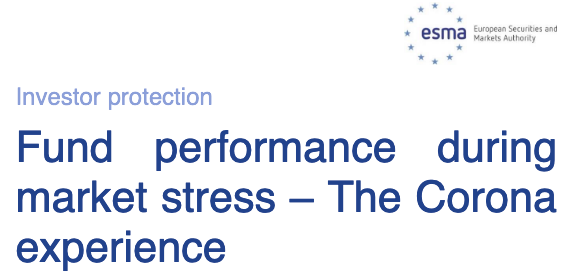 As stated by ESMA “the COVID-19 crisis offers the opportunity to test the hypothesis [often claimed by the industry] that active equity UCITS outperform their benchmarks during stressed market conditions”.
As stated by ESMA “the COVID-19 crisis offers the opportunity to test the hypothesis [often claimed by the industry] that active equity UCITS outperform their benchmarks during stressed market conditions”.
In light of this period of market downturn followed by a quick recovery and then stabilisation, ESMA analysed a sample of actively managed equity UCITS funds, considered net of ongoing costs, over the period from 19 February 2020 to the end of June 2020.
ESMA demonstrated that during the corresponding first Covid wave (19 February-31 March) less than half of actively managed funds overperformed their reference benchmark, and therefore failed to consistently outperform passive ones.
The results are even more concerning for the post-stress test period (1 April-30 June) where more than 60% of funds underperformed their benchmark. Besides the highest-rate class ones, funds also often underperformed the Eurostoxx50 and Eurostoxx 600 benchmarks. Moreover, even when considering their performance adjusted benchmarks, returns often hover around zero or were clearly negative for UCITS funds.
BETTER FINANCE welcomes ESMA's study, which confirms the often misleading nature of the claims by asset managers that the costs stemming from the active management of products should translate into better performance.
In 2019, and before the Covid-induced market stress, BETTER FINANCE had already demonstrated that high costs hurt equity fund performance in its study on the correlation between cost and performance of European equity funds for retail investors (covering UCITS and AIFs).
- The full ESMA study is available here.
